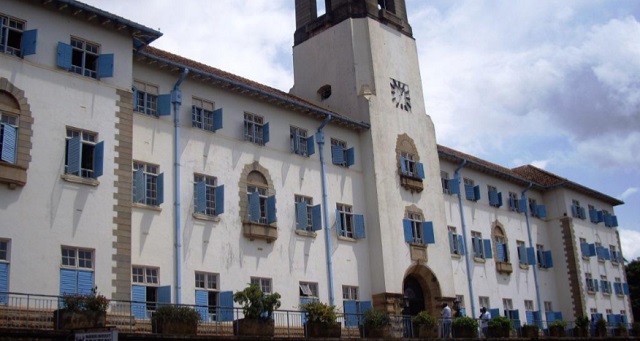
Kampala, Uganda | THE INDEPENDENT | Researchers from Makerere University have called for comprehensive interventions to increase the female intake in Science, Technology, Engineering and Mathematics (STEM) disciplines.
They argue that that the affirmative action policy which awarded 1.5 bonus points to girls qualifying to enter public universities, remains insufficient to address equity issues, especially in science-related courses. As a result, they say, the current government merit scholarship for students in higher education is heavily bent in favour of male students.
Professor Rhoda Wanyenze, the head of Makerere’s Gender Equity Select Committee attributes the low female attraction rates in science courses to strict cut off points, biases from lower education levels against science courses, lack of motivation, as well as cultural and societal connotations and perceptions about certain trades and gender.
A university study that analyzed data on applications and admissions over a period of eight years between 2011 and 2018, shows that there was a significantly lower percentage of girls enrolled across the seven selected science programs at Makerere University.
For the past eight years, the Bachelor of Science with Education –Physical and Biological subjects have had an average intake of 51 females against 234 male students. At least every year, 31 per cent of the applicants seeking government sponsorship on average are female and only three female and 16 male students per year were awarded government scholarships on the Bachelor of Pharmacy program.
Professor Wanyenze, also the Dean of Makerere University School of Public Health says that the award of government scholarships is heavily skewed towards male students. She argues that although the proportion of girls increased in the private scheme compared to the government scheme, it clearly demonstrates inequitable access to funded higher education with girls missing out on the government scheme.
She adds that more female science teachers for instance both at secondary and university would inspire females to take offer and eventually pass science subjects and help on the choices towards STEM courses.
In August this year, Makerere University Council, a supreme governing body approved the Affirmative Action Policy providing for a 40 per cent enrollment quota for female students in STEM disciplines. This was after researchers established that female students’ numbers remained miserable despite the national policy.
Wanyenze welcomes the policy which she says will help, not only at admission but also support girls to secure scholarship opportunities. She explains how she ended up pursuing sciences.
Professor Florence Mutonyi D’ujanga, the chairperson of the Senate Adhoc Committee on the affirmative action policy argues females and males are able to compete in their quotas to ensure improved, balanced enrollments in disciplines that are performing badly. She points out Veterinary Medicine, Pharmacy, Civil Engineering, Industrial Chemistry and the Bachelor of Science with education –Physical and Biological subjects.
Professor Mutonyi says there is a need to enhance the current affirmative action beyond the 1.5 bonus awarded to all girls at entry.
Makerere Vice-Chancellor Professor Barnabas Nawangwe in an interview with URN agrees that there is a need to adjust intake figures and class sizes upwards and deliberately invest in increasing the capacity to ensure that more qualifying girls and boys are admitted.
Makerere is not the first university to effect this policy. In 2007, Busitema University, a predominantly science-based university instituted a 30 per cent quota for females and later increased this quota to a 50-50 quota in 2016 which resulted into a significant increase in the enrollment of females in science disciplines.
*****
URN
 The Independent Uganda: You get the Truth we Pay the Price
The Independent Uganda: You get the Truth we Pay the Price



And much more females are admitted for diploma/bachelor in nursing than males but there is no policy to recify this injustice…
Female career’s choice are most likely a result of socialization by society right from birth of the females in preparation for specialized gender roles and trying to rectify this supposed inequality at the point of university admission is futile and will backfire with competent females viewed as unfair beneficiaries of feminists social-engineering that allows otherwise incompetent females to attain undeserved qualifications achievements.
The obsession for equality in society is a disaster waiting to happen the social-equality warriors should instead focus on equality of access to opportunities for all with individuals fairly rewarded for their effort/investment and not due accidents of birth.
What the world needs is people who are able to add value to it. It’s not about numbers. It’s the quality that matters. No company will employ one who is inefficient. So I think the ladies should just work as hard as the males do and get the required points required.